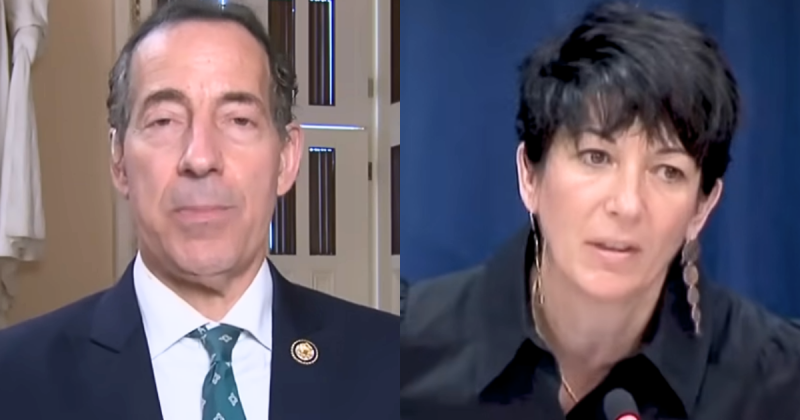Rep. Jamie Raskin (D-MD) is under scrutiny after allegations surfaced that staff at Federal Prison Camp Bryan accessed privileged attorney-client emails from Ghislaine Maxwell and provided them to him, who then shared portions with the media.
Maxwell’s attorney, Leah Saffian, called Raskin’s actions “improper” and said they compromised the integrity of the legal process.
Saffian stated that prison personnel bypassed the Bureau of Prisons’ TruLink email system, which is intended to protect secure communications between inmates and their attorneys.
According to LifeZette, the extracted messages were forwarded to Raskin, who labeled them “whistleblower information” before their public dissemination.
“As a ranking member of the House Oversight Committee and a law professor, Raskin should recognize the legal implications of such actions,” Saffian said, noting the breach undermined established protections for confidential communications.
The Bureau of Prisons reportedly acted quickly, terminating the staffers responsible for the breach.
“Appropriate action has already been taken,” Saffian confirmed.
She emphasized that the incident raises serious concerns about the integrity of internal prison systems and the safeguards meant to protect attorney-client communications, which are considered fundamental to the fairness of legal proceedings.
Saffian criticized the framing of the emails as whistleblower material, calling it both misleading and politically motivated.
She noted that no effort was made to verify the accuracy of the information before its release.
According to Saffian, the disclosure violated constitutional protections, including the First, Sixth and Fourteenth Amendments, which guarantee that prisoners’ communications with legal counsel remain confidential and free from unauthorized government intrusion.
She added that the improper release could set a dangerous precedent for how sensitive inmate communications are handled across federal facilities.
Contrary to circulating claims, Maxwell has not sought a pardon or commutation from President Trump.
She is preparing a habeas corpus petition in the Southern District of New York, which reportedly contains new evidence not available during her 2021 trial.
The filing challenges alleged government and juror misconduct, seeking judicial relief without relying on clemency or executive intervention.
Legal observers have noted that such petitions can lead to retrials or reduced sentences if the court finds the new evidence undermines the original verdict.
Raskin addressed the allegations in an MSNBC interview, expressing uncertainty over which personnel were involved in the terminations.
He described the situation as “unusual” and noted that TruLink’s privacy disclaimers complicate the matter.
“We’re not disclosing the source of the information, and it may not even come from the individuals mentioned,” he said, according to BizPac Review.
The Hill reported that Raskin’s office declined to comment on the staff terminations, citing whistleblower protections.
Meanwhile, Saffian reiterated that the unauthorized access and public disclosure violated both professional standards and constitutional safeguards.
She further highlighted that the case underscores systemic vulnerabilities in prison email systems, which could compromise other inmates’ legal rights if left unaddressed.
The incident highlights ongoing tensions between congressional oversight responsibilities and the protection of prisoners’ rights.
It also raises broader questions about how privileged communications are safeguarded in federal facilities, the accountability of elected officials who receive such materials and the potential consequences for legal precedent.
As Maxwell prepares her habeas filing, observers say the situation could have wide-ranging legal, political and constitutional implications, particularly regarding the handling of sensitive legal material and the obligations of public officials to respect attorney-client privilege.

